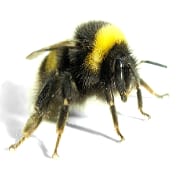Honeybees capable of parity categorization
Honeybees are the only non-humans found to be capable of learning parity categorization.
Key facts
- Parity classification is the categorization of numbers as either odd or even.
- It is used when dealing with real-world objects that can be paired. If an element cannot be paired in a group, then the number of objects are odd.
- Previous studies have shown that honeybees are capable of learning the order of quantities, performing simple addition and subtraction, matching symbols with quantities and relate size and number concepts.
- A new research has found that they were also capable of parity classification.
- Till date, only humans were found to be capable of this task.
- Honeybees were successfully trained to undertake this task as part of an experiment.
- The scientists separated honeybees into two groups.
- One group trained to associate even numbers with sugar water and odd numbers with quinine (bitter-tasting liquid).
- Another group was trained to associate odd numbers with sugar water and even number with quinine.
- The training was given using comparisons of odd versus even numbers with cards presenting 1 to 10 printed shapes.
- The group that associated odd number with sugar water learned more quickly than the other group.
- This shows that honeybees’ learning bias is different from humans, who categorize even numbers more quickly.
- The bees were then tested with new numbers that were not shown during the training.
- They were able to categorize the new numbers of 11 or 12 elements as odd or even with 70 per cent accuracy.
- They may have been able to achieve this feat either by finding unpaired element, performing division calculations or counted each element and applied odd or even categorization rule to the total number of elements.
- This novel experiment, if used in other animal species, would help improve the understanding on how mathematics and abstract thoughts emerged in humans.
Month: Current affairs - September, 2022
Category: Science & Technology Current Affairs


